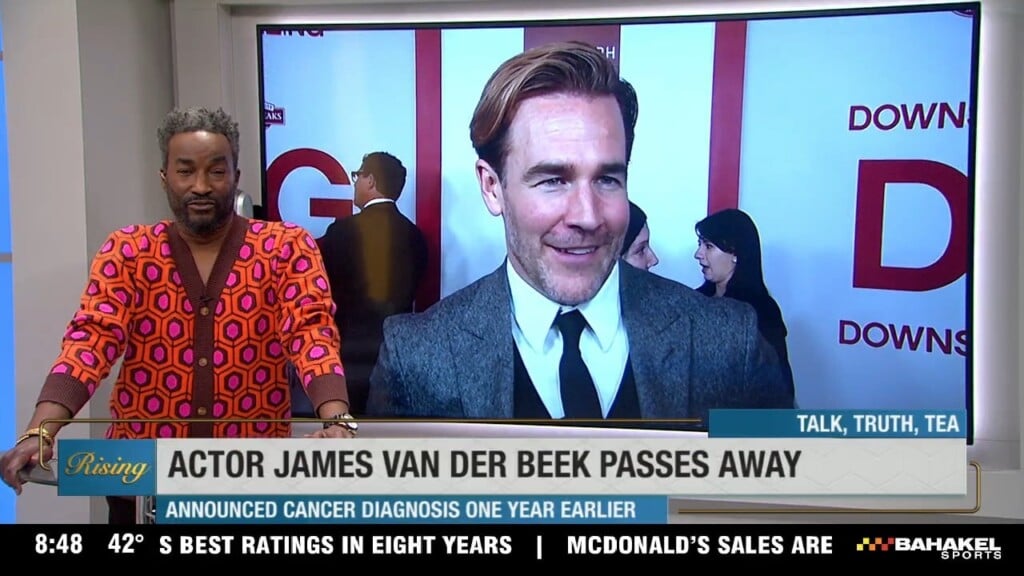ATLANTA (AP) — A lighting technician is mowing lawns. A camera assistant is teaching guitar again. An actor has thought about shifting careers.
For more than a decade, work had been nonstop in Atlanta’s booming film industry thanks to Georgia’s extremely generous tax break. Dubbed the “Hollywood of the South,” metro Atlanta became a ubiquitous backdrop for huge projects, including Marvel films and Netflix’s “Stranger Things.”
As soundstages sprouted up, the insatiable need for crews turned the city into a prime destination for both behind-the-scenes workers seeking to break into the entertainment industry and “journeymen” actors wanting a reprieve from the hustle of Los Angeles or New York. But work dried up last winter and has been at a near-standstill ever since the industry’s writers went on strike in May and actors joined them in July.
Writers reached a deal late last month, but with the actors strike still ongoing, countless Atlanta-based performers, as well as members of the International Alliance of Theatrical Stage Employees, are grappling for financial survival and with whether they’ll even return to the industry.
THE CREW
“I wake up every morning and I’m like, s—-, I wish I could be on set right now,” said Ed O’Hare, a 29-year-old set lighting technician who broke into the industry shortly after college by doing janitorial work at a local studio.
O’Hare said he rose through the ranks thanks to his eagerness to learn the crafts, eventually discovering a passion for lighting. Fellow technicians quickly took him under their wing and helped him get hired on productions, including the Benicio Del Toro-led thriller “Reptile,” despite his lack of experience: “I’ve been told by multiple people that I couldn’t have done that in L.A. or New York,” he says.
Having now gone nearly five months without film work, O’Hare has been relying on a combination of savings, unemployment checks and odd jobs he’s been doing for his grandmother’s neighbors, including lawnmowing and pressure washing. It’s been enough for him to scrape by, though he’s also considering getting a bartender job like he had in college.
In the meantime, O’Hare has attended some classes hosted by IATSE, reuniting with industry colleagues as they brush up on technical skills and learn new ones, including soldering.
There’s a recurring joke during the classes, O’Hare says. Whenever the instructor asks for questions, someone is always quick to respond with the key one: “Yeah, when are we going back to work?”
Like his union, which has held unity rallies, O’Hare said he supports the writers and actors for fighting for what they deserve. He hopes the actors will soon reach a deal, though a recent breakdown in negotiations had quelled some optimism. Even with a deal, O’Hare knows it could still be months before he’s back on set.
Alex Buhlig, 34, moved from Atlanta to LA in 2015 as an aspiring camera assistant. But all the calls he got kept coming from Georgia.
Buhlig was back in Atlanta in less than a year, working primarily on commercial projects, independent movies and reality shows until 2017 when he joined IATSE — and was soon asked to work on the blockbuster “Godzilla: King of the Monsters.”
“A month prior to working on ‘Godzilla,’ I had been doing indie films whose entire budget was $10,000,” Buhlig recalls, laughing. “It’s a testament to how busy Atlanta was at the time.”
In recent months, Buhlig, now a second camera assistant, has been relying on sporadic work commercial and music video work, but “if the strike continues through next year, that’s unsustainable.”
“I’ve got to figure something else out,” said Buhlig, who has also been piecing together hours as a guitar teacher, a job he’s held in the past while “trying to avoid doing the restaurant thing again.”
Buhlig says he recently had to pull some money from his pension since his bank account was running low but considers himself “extremely fortunate” since he has health care coverage and doesn’t have a family depending on him.
He knows others are in tougher positions.
“The strike will definitely push people out of the industry — it probably already has,” Buhlig said. “Because if you had just gotten started or you weren’t working recently, I couldn’t imagine going through something like this.”
THE ACTORS
Despite Atlanta’s large role in the industry, the local chapter of the Screen Actors Guild-American Federation of Television and Radio Artists has only about 3,700 members — less than 3% of total membership.
Yet Atlanta’s actors praise the sense of community and the relatively low cost of living — though affordability has taken a big hit in recent years.
“I have found more community here in the city of Atlanta (over the past five years) than I had in LA in 40,” actor Ethan Embry told cheering rallygoers this summer.
Embry, who started as a child actor before starring in the teen rom-com “Can’t Hardly Wait” and Netflix’s “Grace and Frankie,” later told the AP: “It’s not the same fight for survival that Los Angeles has. Everything in Los Angeles feels like a competition. Here, everything feels like you’re in it together.”
Bethany Anne Lind credits Atlanta’s post-2008 filming boom with boosting her then-fledgling acting career, saying she likely got some small roles because studios didn’t want to spend money to fly someone else out.
But now that she’s more established, with a memorable supporting role in Netflix’s “Ozark,” Lind says it’s been hard to land meatier parts. She feels Atlanta-based actors are frequently overlooked by casting agents who still focus on New York and Los Angeles talent pools.
Lind is a prominent speaker at local rallies, yet feels slightly envious of colleagues in Hollywood, who picket outside studios daily — Atlanta may have the second-most number of soundstages in the nation, yet picket lines are a rarity because studios are headquartered elsewhere.
“It’s very strange to see my friends in LA and New York getting out there, like sweating their faces off every day and not being able to be a part of that,” Lind, who signed an open letter this week urging SAG-AFTRA not to accept “a bad deal,” says. “There would be something cathartic about being able to put my body into it that I think we do miss out on here.”
Over the summer, as she focused her energy on her children and vegetable garden, Lind began to contemplate whether she should shift careers.
“For the first time in my almost 20-year career now, I’m really trying to think about what else I can do that I could have some enjoyment from, but also just be a little bit more steady and then hopefully have the flexibility to act also,” she told the AP then.
Yet by October, she was back onstage, having landed the lead role in a local production of the British play “ Home, I’m Darling.” She isn’t discounting potentially going back to school for something else — but doesn’t know what that alternative would be.
Once the actors get a deal, Embry is optimistic that business will once again boom in Georgia’s capital — though this time people will be “treated more fairly.”
“They’ve already made the investment in Atlanta,” Embry said of the studios. “They realize that Georgia has things that are special to Georgia. There’s a reason they all come here, and it’s not just the tax break. We have the talent, we have the scenery, we have all of the different landscapes that filmmakers are looking for.”




